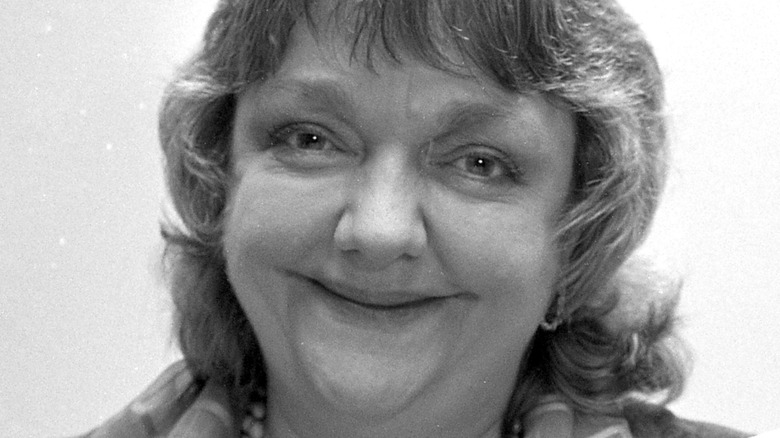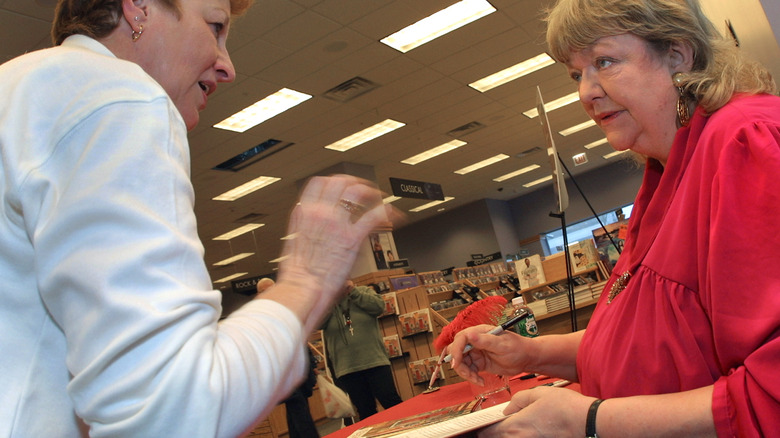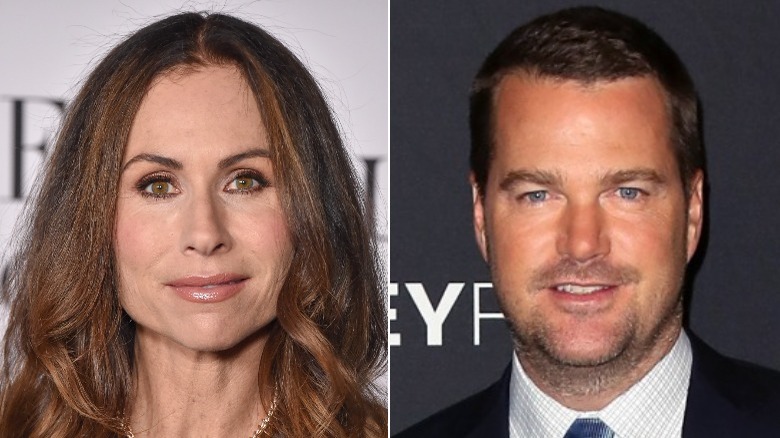If You've Never Read Anything By Maeve Binchy, Here's The Book You Should Start With
For nearly 50 years, Maeve Binchy has beguiled readers around the world with her intimate descriptions of the lives of women. Binchy cut her teeth as a columnist for the Irish Times starting in 1968 before writing 16 novels, all of which have been translated into dozens of languages (via The New York Times). Although you may have never read any of her works, you've likely heard of her most popular book: "Circle of Friends."
Published in 1990, "Circle of Friends" takes place at Binchy's real-life alma mater, University College, Dublin in the early 1950s (per Los Angeles Times). The novel is a coming-of-age story about three girlfriends raised in a small town who now must figure out life and love in the big city. If you think the plot and characters resemble a romance novel, you wouldn't be wrong. But Binchy never embraced that description, nor do her books contain highly charged descriptions of sex, according to The New York Times' book review. In fact, her works are surprisingly chaste. Six years before her death in 2012, Binchy told the Daily Mail (via The New York Times) that she doesn't write graphic sex scenes, not because of a moral objection but "because I'm afraid I'll get it wrong. You see," she clarified, "I've never been at an orgy and I wouldn't know where legs should be and arms should be." It's exactly this kind of self-effacing humor that makes Binchy's writing so irresistible.
Circle of Friends celebrates the complexity and richness of being a woman
When "Circle of Friends" hit bookstore shelves, The New York Times book review raved about Maeve Binchy's particular knack for telling women's stories. The novel follows Bernadette (Benny) Hogan, a full-chested, geeky but adorable girl of 18 whose middle-class life as the haberdasher's daughter has been quite comfortable. Her childhood best friend Eve Malone — "the smart one" — comes from quite different roots; having been orphaned, she was raised by nuns in the local covenant. The stereotypical pretty girl in their circle is Nan Mahon who aspires to transcend her humble roots and become (vis a vie marriage) the aristocrat she believes herself to be.
In a twist on a tired trope, it is the sweet, funny, and admittedly sexy Benny who wins the affection of the cutest boy at school, Jack Foley (via The New York Times). Together the friends must weather growing pains, heartache, and tragedy, ultimately discovering their true selves. Binchy once remarked, "there are no makeovers in my books. The ugly duckling does not become a beautiful swan. She becomes a confident duck able to take charge of her own life and problems." "Circle of Friends" subversively asks these young women to decide if life really is all about love and marriage. Perhaps friendship is the most important relationship of all, as the Los Angeles Times noted.
Circle of Friends was adapted into a hit film in 1995
The world can thank Maeve Binchy for more than just her uncanny ability to turn the ordinary into the extraordinary, according to The New York Times. The movie version of "Circle of Friends" introduced a young Minnie Driver who charmed audiences with her interpretation of Binchy's beloved Benny (via IMDb). Starring opposite Driver is Chris O'Donnell as Jack. O'Donnell's winsome performance, Roger Ebert noted, was crucial to the success of the film. The rest of the all-star cast includes Alan Cumming, Colin Firth, Geraldine O'Rawe, and Saffon Burrows (per Washington Post).
Although some critics dismissed "Circle of Friends" as merely female nostalgia, others praised both the story and the performances, especially Driver's. As the heroine, Driver strikes the perfect balance of bravery and sensitivity — the two qualities that most endear her to Jack. The dialogue, adapted from Binchy's novel by screenwriter Andrew Davies, also received accolades. Both Ebert and the Washington Post remarked that one line of dialogue in particular summed up Driver's excellent embodiment of Benny: "I know I may look like a rhinoceros, but I'm quite thin-skinned, really," she cautions Jack at the school dance. "Don't mess me about. I'll flatten you."
Binchy's protofeminist Benny is an inspiration to young women everywhere and a reminder that being yourself is the most attractive quality of all.


